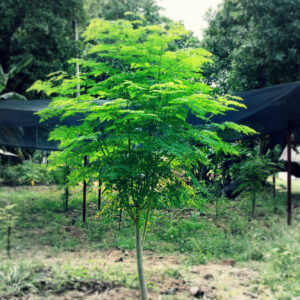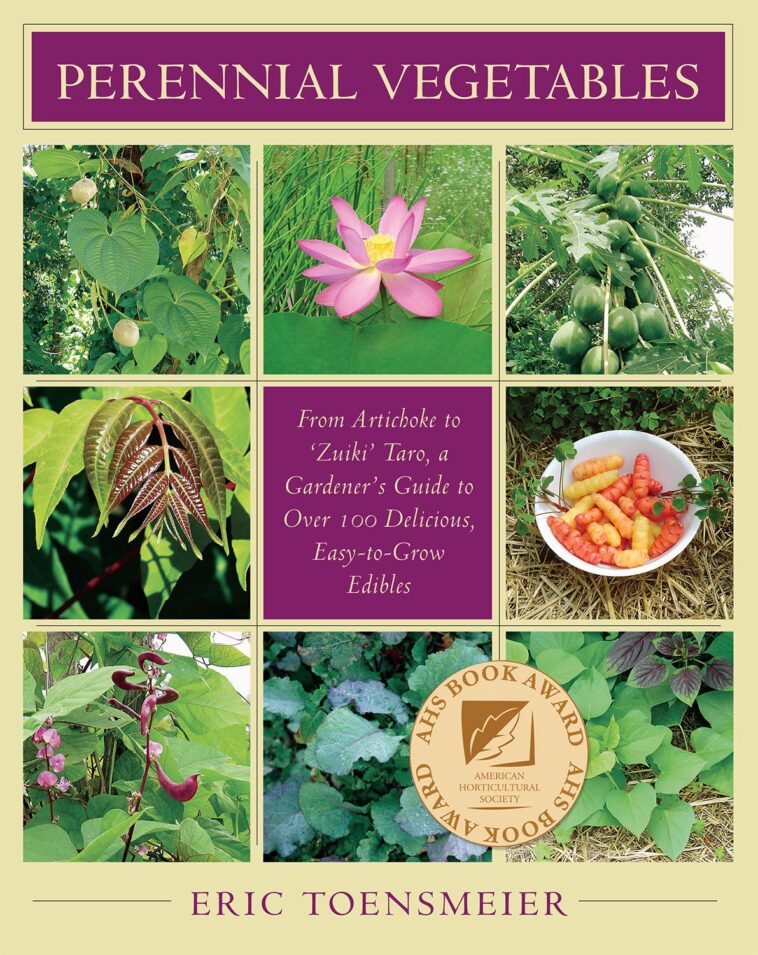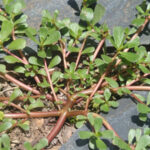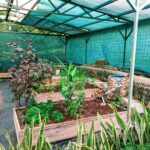This is a review on one book that changed the way I think about edible plants and gardening in general.
When we first moved from the US to Costa Rica we were totally uninformed on tropical gardening. It made sense that with all the sunshine and rain, it would be easy to have a garden. We soon found out that gardening in the tropics requires a totally different skill set compared to gardening in Illinois. In the beginning, we wanted our generic varieties of supermarket vegetables. We tried broccoli, cabbage, brussel sprouts, carrots, lettuce, tomatoes, cauliflower and a plethora of other common US household veggies. There were a lot of failures and a few successes. Some breeds wouldn’t even germinate while others wouldn’t fruit. Some breeds would bolt and die off and other’s would fry in the sun.(“Full sun” on a bag of seeds bought in Illinois is not the same as “full sun” in Costa Rica!)
Even with our small successes, we still found the need to modify our gardening techniques to work with the local climate.
In an effort to find more plants that would grow in Costa Rica, I found a lot of resources and sites about gardening in tropical climates. One book that really made a difference in our gardening and our diet, was Eric Toensmeier’s book, Perennial Vegetables. I’d suggest it to anyone interested in growing their own food and building a “survival garden”. After reading, it was like someone turned a light on in my head. I never realized how many tasty edible plants were “perennial” in warm climates. This means no more seeding or replanting and it definitely means less work. The book lists a variety of plants for a variety of climates, but it’s especially useful for those in warmer climates. The author lists many plants from Southeast Asia, Africa, India and Central/South America. Most of the plant species were completely foreign to me and took some searching to track down seeds and starts.
We’ve had excellent returns on the perennial varieties we’ve grown in Costa Rica. In many cases, we now have an overabundance.
👇Below is the Amazon link to purchase or preview.👇
Perennial vegetables can start a revolution in personal food production. Some of the vegetables in the book grow like ground covers and can produce indefinitely. Some grow like weeds. Other’s grow like bushes and produce edible leaves and/or fruits. You can imagine how nice it is to have an edible plant that lives for years and requires little care.

The crazy thing is, some of the perennials mentioned in the book also have the potential to stave off malnutrition and hunger. Ironically, most of the human suffering due to malnutrition occurs in tropical climates…….the exact climates where many perennial vegetables thrive! Moringa, Katuk and Pigeon Peas are just a few of the plants that require little upkeep, do fine in the heat, drought, are pest resistant, and produce food for years on end. After growing these myself, It’s a wonder why these aren’t embraced my everyone! It still frustrates me when I see people spending so much time and work on more traditional vegetables when their output could be so much greater. I want to start a perennial gardening revolution!
As a result of planting and propagating many of the perennial varieties in Eric’s book, our family has changed the way we eat and the way we look at food. I’m a fan.
Check out the book




GIPHY App Key not set. Please check settings